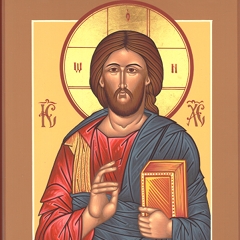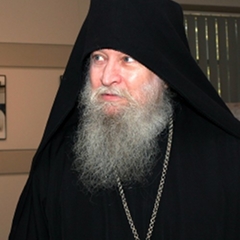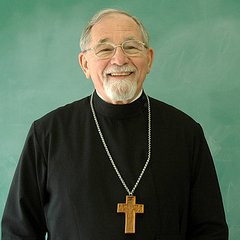 For much of my life, Christianity was defined by my church tradition: Seventh-Day Adventism. It took just over two decades to begin to recognize and even appreciate other protestant denominations. I attended conferences, seminars, and worship services put on by Baptist, Vineyard, and non-denominational groups ultimately leading us to work with Impact Ministries in Guatemala. Amber and I embraced non-denominationalism as we were not able to find a single denomination that suited our belief system to that point. Our move to Calgary led us to attend a Christian Reformed Church where we continue to enjoy the Reformed Tradition.
For much of my life, Christianity was defined by my church tradition: Seventh-Day Adventism. It took just over two decades to begin to recognize and even appreciate other protestant denominations. I attended conferences, seminars, and worship services put on by Baptist, Vineyard, and non-denominational groups ultimately leading us to work with Impact Ministries in Guatemala. Amber and I embraced non-denominationalism as we were not able to find a single denomination that suited our belief system to that point. Our move to Calgary led us to attend a Christian Reformed Church where we continue to enjoy the Reformed Tradition.During all these years I have taken a Protestant position towards Roman Catholicism, though more mildly than other protestants to be sure! I'm not Northern Irish Protestant. My objections to RC were doctrinal, structural and practical so I had little interest in exploring for gems. I should note that I have enjoyed many relationships with Catholics and I have no doubt that I have much to learn of God from Catholic theologians and much to learn of piety from Catholics.
My attitudes, right or wrong, towards Roman Catholicism extended to the Eastern Orthodox Church because for some reason I equated the two, the Orthodox just didn't follow the Pope. Because of this, my knowledge and experience with Eastern Orthodoxy was extremely limited:
- Characters in Crime and Punishment by Russian Orthodox author Fyodor Dostoevsky were either practicing Orthodox or practicing vogue atheism.
- My visit to Ukraine in 1993 took us on a small tour of Orthodox churches in a little village in Kiev.
- I visited a tiny Russian Orthodox Church in Nice, France because it was on the city tourism brochure in 1997.
I had classified the Church as a cultural vestige of eastern Europe that had just about been decimated by communism.
Then my sister-in-law dated then married a Greek Orthodox man. I have to admit that I revealed a pronounced Evangelical/Protestant/North American bias in my half dozen dialogues on Christianity with Gabriel.
Then a couple summers ago, my new friend Chris from Regina passed me a book: The Mountain of Silence: A Search for Orthodox Spirituality by Kyriacos Markides. Sociology professor Markides returns to his native Cyprus to dialogue with a high ranking monk who spent years on Mount Athos, a haven of Orthodox monks for many centuries. It was an informative and fascinating introduction to this Christian faith, if not a little challenging.
 Then this past year, Chris sends me a link for a YouTube video of this retired monk named Lazar Puhalo who broadcasts talks on pop culture, ancient Christianity, and dialogues with an Anglican scholar. His voice is refreshing and gives clarity to the differences between western and eastern Christianity. I frequent his videos through the winter.
Then this past year, Chris sends me a link for a YouTube video of this retired monk named Lazar Puhalo who broadcasts talks on pop culture, ancient Christianity, and dialogues with an Anglican scholar. His voice is refreshing and gives clarity to the differences between western and eastern Christianity. I frequent his videos through the winter.Then in July, I spent a couple weeks at a summer camp in Saskatchewan where Chris and his friend Marc from Ottawa bring me to an Orthodox church in Regina. The liturgy is in English (as opposed to my two previous light encounters). The priest is jovial. I pick up some "hey, you should become Orthodox" brochures in their lobby and read through them quickly because so much of it is new and old at the same time.
Discussions with Marc and Chris bring more clarity to some of the foggy patches and I drop my guard toward this unfamiliar, yet affirming faith. I ask Chris to send me links to the podcasts he keeps telling me about: Our Life in Christ by two Protestant ministers turned Orthodox priests and Speaking the Truth in Love by scholar and priest Thomas Hopko. Chris left me three books to read too while he's away in Kuwait for the next couple years.
I have learned that Eastern Orthodoxy and I share many of the same issues with western protestant Christianity. Some of these include protestantism's low view of the physical world and body (dualism), a lack of respect for authority in the church, a weak emphasis on the incarnation and resurrection, a literal/inerrant view of the Bible, an independent spirit of interpreting the Bible, an unhealthy view of the church's relationship with the state, a trifling method of manipulating science to support "biblical" views, an ignoring of Christian history prior to the reformation, the purpose and cause of Christ's death, eschatological emphases on end times, and the purpose of man.
I've listened to dozens of podcasts now and my appreciation for Eastern Orthodoxy has only grown. I still have many questions and reservations, but the depth of tradition and the ways of interpreting Holy Scripture are unsurpassed in the Protestant world. It is a generous and yet bold expression of faith.




No comments:
Post a Comment